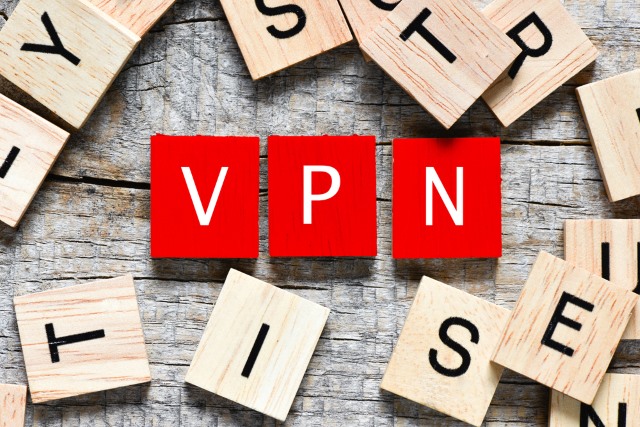Reporting from the other side: Why journalism needs VPNs

Getting news out of hostile territories can potentially be extremely risky, but it is key to making sure that suppressed voices are heard, and that the wider world is aware of what is happening in war zones and regions with unstable leadership.
While the rest of us worry about data security because we’re shopping and banking online, for journalists, an increased focus on this type of security is critical -- particularly for those operating in dangerous regions of the world. As valuable as digital data trails can be to an investigative reporter, they can also work the other way, resulting in a journalist’s identity and stories being revealed. Not only can leaked information limit a journalist’s ability to report the truth, it could also put them and their sources at significant risk.
Any information used on laptops or mobile devices is always at risk of attack. From simple things like leaving devices on a train to the risk of hackers, the accessibility of personal and professional information has made data security more important than ever. For people who are writing political stories which might land them in hot water with local authorities, remaining anonymous online and simply securing data in transit couldn’t be more important.
A secure VPN (Virtual Private Network) service is a simple and diverse solution for a number of the challenges that journalists abroad may face, and should be an essential component of any security setup.
How does it work?
A VPN has two main features. The first is a high level of end-to-end encryption, which is designed to prevent third parties from reading your communications should they try to intercept them. Many also include a kill switch -- so if the user’s VPN connection drops, rather than reverting to unencrypted data transfers, the whole internet connection will be shut down. This means that data isn’t exposed, even for a second.
The second is known as tunneling. This is a process that hides your IP address by connecting you to the internet through an international server. While connected, the source of your activity is completely hidden. All that a third party could see is that you are logged on to a VPN server. Your actual IP, location and activity will all be masked.
While other options, such as the Tor browser, can keep information secure, it is at the cost of speed as your data is sent between multiple servers worldwide. By using its own dedicated servers and end-to-end encryption, a VPN offers security without restrictions on performance -- something that is especially handy for sending video files, streaming or making video calls.
Encrypted communication
Any email communication travels through a number of servers, making it relatively simple for a third party to collect information, including your IP address, the details of recipients and even the content of the emails. Many email providers only use point-to-point encryption, meaning that while messages can’t be read as they pass from server to server, they can be easily read and altered during temporary decryptions at each stop in their journey.
When communicating with a source that wishes to remain anonymous, protecting their identity is crucial. Operating within a VPN tunnel can keep all of your communications secure and, by using a high level of security protocol, will ensure that the identity of sources and their information is protected from prying eyes.
Another benefit of end-to-end encryption is that you will be able to connect to local internet and public Wi-Fi services without fear of your browsing activity being monitored. You’ll also be able to connect to your office network while working remotely without putting professional data at risk.
Geolocation
As well as anonymity and security, a VPN can help to overcome another challenge. In many authoritarian countries it is common for a variety of digital media sources to be restricted -- from social media to news outlets. The intention is to control the information flow in and out of the country, but by using a VPN to mask your location, you should be able to circumvent almost all local restrictions.
Chinese journalist Shi Tao was sentenced to 10 years in prison in 2005 for leaking Chinese media restriction plans to a human rights group, on the back of information provided by his internet service provider. Had he been able to use a VPN service, his activity could have been masked and it is possible that he may not have been identified. Some VPNs even offer a setting that allows you to browse as if you’re in the nearest country with more lenient freedom of speech laws.
Ease of use
One of the key benefits of a VPN service is its simplicity of use. Many offer apps which not only include a simple on/off toggle, but the ability to change security protocols and server locations at the touch of a button. The ability to quickly switch locations and launch your VPN service could be crucial when accessing or transferring sensitive information.
Digital journalism requires a keen eye and vigilance to protect research, sources and stories. While a VPN is a vital tool for safe and secure communication, it is just one of a number that should be used as part of a holistic strategy. Devices should always be backed up, and the latest software updates and security patches should be installed as soon as they are available.
Hackers are always aware that new updates fix security weaknesses, and that many people are slow to update, sometimes even reluctant due to perceived performance issues that a new update could cause. This means a large percentage of devices are not protected despite the patches being available -- a risk that you can’t afford to take when reporting on sensitive information. Similarly, strong passwords and two-factor authentication should be used at every opportunity.
Whether conducting investigative research or reporting from a restricted location, a VPN service can offer many benefits for journalists that will both protect their work and, potentially, their safety.
Photo credit: Roobcio / Shutterstock
 Tabby Farrar is a professional researcher and writer, specializing in cyber security and travel content.
Tabby Farrar is a professional researcher and writer, specializing in cyber security and travel content.